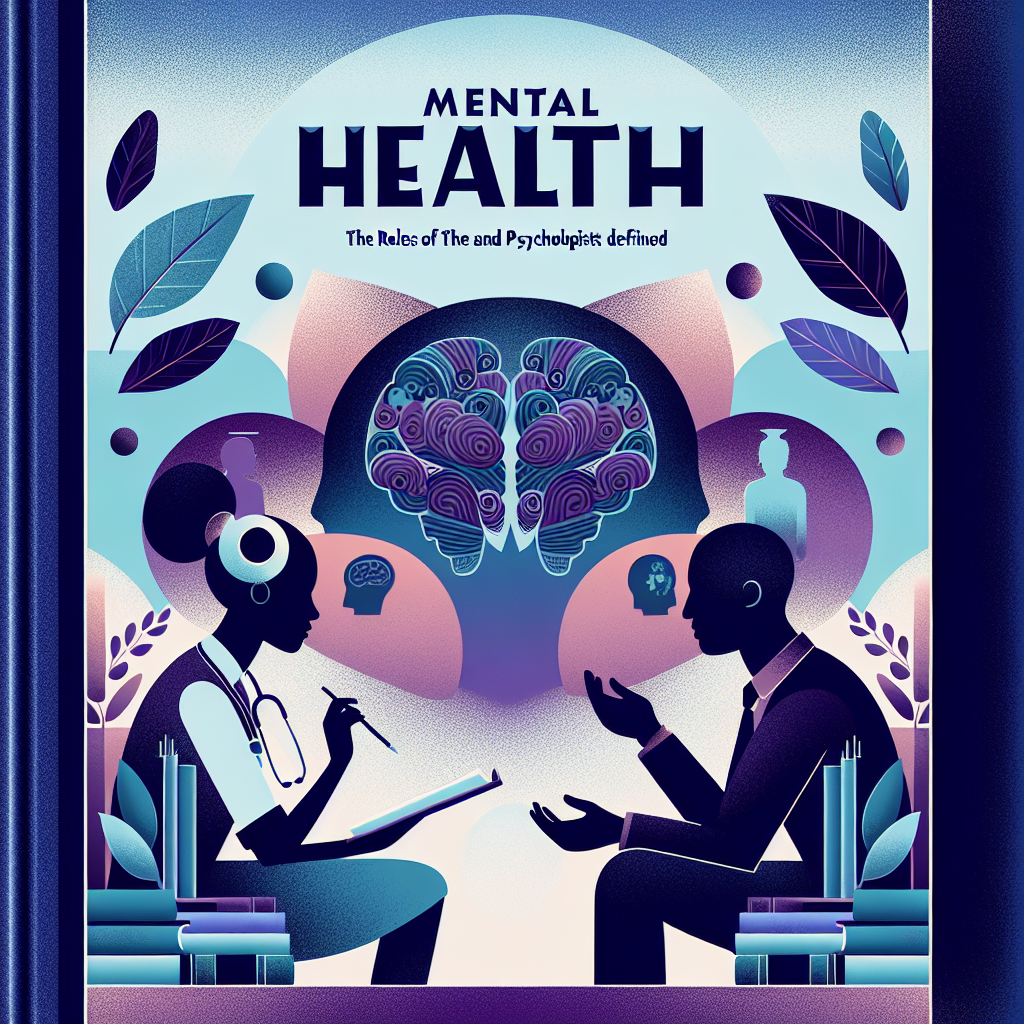
Introduction
In an era where mental health is finally taking center stage in healthcare discussions, understanding the intricacies behind mental health professionals is crucial. At the forefront of this mission are therapists and psychologists—two roles that are often misunderstood or used interchangeably. In this article, “Mental Health 101: The Roles of Therapists and Psychologists Defined,” we will delve into the nuances that differentiate these two professions while highlighting their unique contributions to mental wellness.
Mental health matters now more than ever, with increasing awareness of issues such as anxiety, depression, and trauma. This discussion is essential, not just for individuals seeking help but for families, communities, and society as a whole. A basic understanding of these roles facilitates better mental health care and promotes healthy conversations around seeking help.
Understanding Mental Health: A Foundational Overview
Before diving into the specifics of therapists and psychologists, let’s lay the groundwork. Mental health encompasses emotional, psychological, and social well-being, affecting how we think, feel, and act. It plays a crucial role in how we cope with stress, relate to others, and make choices.
In the landscape of mental health care, various professionals contribute to improving and maintaining mental wellness. Among these, therapists and psychologists serve distinct but complementary roles.
What is a Therapist?
Definition and Qualifications
The term “therapist” is often a catch-all that may include social workers, counselors, marriage and family therapists, and licensed mental health counselors. Though their qualifications can vary widely based on the type of therapy they provide, most therapists hold at least a master’s degree in a relevant field and possess a state license to practice.
Types of Therapies Offered
Therapists can employ a range of therapeutic approaches, including:
- Cognitive-Behavioral Therapy (CBT): Focuses on changing negative thought patterns.
- Dialectical Behavior Therapy (DBT): Combines cognitive-behavioral techniques with mindfulness practices.
- Humanistic Therapy: Emphasizes personal growth and self-actualization.
Case Study: Sarah’s Journey with CBT
Sarah, a 30-year-old woman, sought therapy after struggling with anxiety. Her therapist employed Cognitive-Behavioral Therapy, helping Sarah identify and challenge irrational fears. Over several months, Sarah learned to reframe her thoughts and develop coping strategies, ultimately leading to significant improvements in her daily life.
Analysis
Sarah’s experience underscores the efficacy of structured approaches in therapy. This case illustrates how a therapist’s specialized training can directly impact an individual’s recovery and empowerment, encapsulating the core value of therapy in mental health care.
What is a Psychologist?
Definition and Qualifications
Psychologists specifically hold doctoral degrees (Ph.D. or Psy.D.) and are equipped to diagnose and treat mental health conditions through various psychological assessments and therapeutic techniques. Unlike many therapists, psychologists often conduct research and develop new treatment methods as well.
Specializations within Psychology
Psychologists can specialize in numerous areas, including:
- Clinical Psychology: Focuses on the assessment and treatment of mental health disorders.
- School Psychology: Works with students facing academic and social challenges.
- Industrial-Organizational Psychology: Applies psychological principles to workplace issues.
Case Study: Mark’s Experience with a Psychologist
Mark, a 25-year-old graduate student, visited a clinical psychologist after experiencing depression. His psychologist utilized a combination of assessment tools and therapy sessions to provide a comprehensive understanding of his mental health. Together, they developed a treatment plan that included therapy and lifestyle adjustments, resulting in substantial improvements in Mark’s academic and personal life.
Analysis
Mark’s case illustrates how psychologists leverage their diagnostic skills and therapeutic frameworks to address more complex mental health issues. This highlights the importance of a psychologist in not just treating conditions but also understanding individual contexts, an essential aspect of effective mental health care.
Key Differences Between Therapists and Psychologists
Understanding the roles of therapists and psychologists can often seem daunting. However, focusing on three key differences can clarify their individual contributions to mental health.
Educational Background
- Therapists: Typically possess a master’s degree with additional state licensing requirements.
- Psychologists: Hold a doctoral degree and are certified to perform psychological testing.
Treatment Methods
- Therapists: Often practice a variety of talk therapies and may focus on practical skill-building.
- Psychologists: Utilize research-based assessments and can offer more structured forms of therapy, including clinical evaluations.
Approach to Mental Health
- Therapists: Primarily offer support and coping strategies, emphasizing the individual’s strengths.
- Psychologists: Tend to explore underlying psychological issues through rigorous assessment and treatment models, often diagnosing mental health disorders.
The Impact of Therapy and Psychology on Mental Health
Therapists and psychologists work collaboratively—often within multidisciplinary teams—to provide holistic mental health care. Understanding the roles of both improves access to resources and leads to better outcomes for individuals seeking help.
Table: Therapist vs. Psychologist
| Factor | Therapist | Psychologist |
|---|---|---|
| Educational Background | Master’s degree | Doctoral degree |
| Licensing | State license | State license and board certification |
| Treatment Focus | Talk therapies | Diagnostic assessments and therapies |
| Specializations | Various (e.g., marriage, addiction) | Various (e.g., clinical, educational) |
| Approach | Skill-building and coping strategies | Research-based and diagnosis |
Conclusion
In summary, navigating the world of mental health requires a nuanced understanding of the essential roles therapists and psychologists play. Recognizing the difference between these two professions is vital for anyone considering mental health care. As we’ve explored in this article, titled “Mental Health 101: The Roles of Therapists and Psychologists Defined,” both therapists and psychologists contribute uniquely to the richness of mental health care, providing invaluable support and interventions.
If you or a loved one is considering seeking help, understanding these roles can be the first step toward improved mental health. Remember, seeking assistance is not a sign of weakness but a profound expression of self-care and growth.
FAQs
1. What should I consider when choosing a mental health professional?
Consider their qualifications, areas of expertise, and treatment approaches. Ensure they align with your specific mental health needs.
2. Can I see both a therapist and a psychologist?
Yes, many individuals benefit from the insights of both a therapist and a psychologist to address various aspects of their mental health.
3. How do I know if I need therapy or psychological evaluation?
If you’re experiencing persistent emotional distress or symptoms, a psychologist can provide an assessment. Therapists are a great first step for ongoing support and coping strategies.
4. Are online therapy services effective?
Many studies suggest that online therapy can be just as effective as face-to-face sessions, especially when it comes to accessibility and convenience.
5. How can therapy improve my mental health?
Therapy provides a safe space to explore thoughts and emotions, develop coping skills, and enhance personal insight, ultimately leading to improved mental health outcomes.
In conclusion, understanding the essential roles of therapists and psychologists allows for informed choices when seeking mental health care. We hope this exploration of “Mental Health 101: The Roles of Therapists and Psychologists Defined” has given you valuable insights and motivates you to take proactive steps toward your mental wellbeing.
















